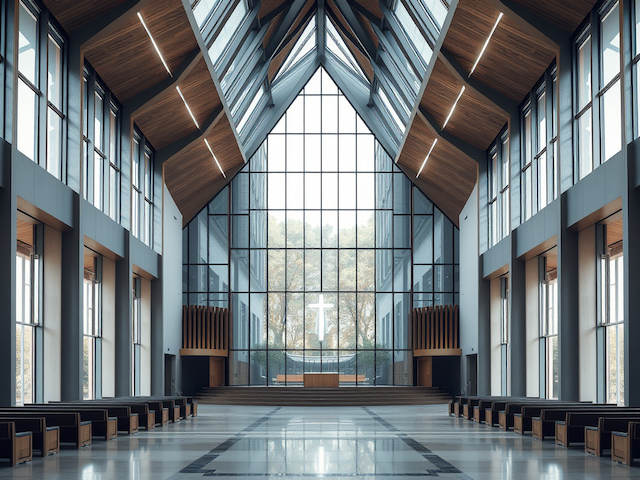Greater than the temple? (Matthew 12:6)
“Something greater than the temple is here?” How could a Jewish person say that?

Open Matthew 12:6.
Imagine for a moment you’ve always had a fascination with Windsor Castle, its architecture and 39 generations of monarchs stretching all the way back to William the Conqueror. One day, all your dreams come true: you’re invited to a royal banquet at Windsor Castle.
You arrive, and you’re ushered in for the first time. You pause to breathe its air and smell the history. You wonder what stories these stones could tell. You’re so engrossed that you don’t realize when Queen Elizabeth enters to speak with her guests. A voice brings you back to the present, “Something greater than the Castle is here.” How would you feel if that voice was not one of her aides, but the monarch herself?
Jesus meant to embarrass his opponents with some of this audacious royal claims, but this one takes the cake:
Matthew 12 6 I tell you, something greater than the temple is here.
What did he mean? What in all Judea could be greater than the temple?
King Herod understood the priority of the temple. That’s why he launched a massive restoration project in 19 BC, a project that was still in progress. The temple was where the priests maintained Israel’s relationship with God each day. Three times a year the people journeyed to the temple to celebrate their identity as God’s people: Passover, Pentecost, and Tabernacles. Jesus’ own disciples thought the temple stones were in a class of their own and the temple was incomparable (ποταπος in Mark 13:1).
So what could be greater than the temple? Did Jesus mean himself? His kingdom? His teaching?
The significance of the temple was the person who lived there. In the defiled world, it was holy space, set aside for their heavenly sovereign to live among them. Israel’s own significance derived from God living among them. In a sense, Israel was God’s house. That was clear during the 70 years in exile when there was no temple. Ezekiel prophesied a restored temple, the divine presence that defined his people. Their identity would be, “The Lord is there!” (Ezekiel 48:35).
Remember when God delivered Israel from Egypt and asked them to build him a tent? The cloud-presence of God moved into the tent they built for him, and he guided them “throughout all their journeys” (Exodus 40:38).
It’s what God always intended. Greg Beale has argued that Eden was a kind of temple where God lived openly among humans in the beginning. There was no need for a dedicated holy temple space because the world was not defiled. That original picture is restored in the end. When God cleanses the world as his kingdom restored by the Lamb, God will be present not in one little holy space but in all of creation: “ I did not see a temple in the city, because the Lord God Almighty and the Lamb are its temple” (Revelation 21:22).
So, there is something greater than the temple: the presence of the one who lived there. Was Jesus saying that the divine presence was here in him? Yes he was, but in a very Jewish way.
There’s a sense in which God was present in Israel, even when there was no temple (the 70 years in exile). In a sense, Israel was the house of God. There’s also a sense in which the kings of Israel/Judah represented the reign and presence of their heavenly sovereign. 2 Samuel 7 spells out this connection between the house of David (reign) and the house of God (presence):
- God established the house of David as his representative reign on earth.
- David’s house prepared a place for God’s presence, God living among his people.
When Jesus told the Galilean rulers that “something greater than the temple is here,” he was asking them to accept that:
- He is the descendant of David, anointed to restore heaven’s reign on earth.
- He is cleansing God’s people, so the divine presence is restored to earth in him.
Jesus is the anointed ruler who restores both God’s reign and God’s presence.
Something greater than the temple is here: the reign and presence of the one the temple could only represent.
What others are saying
G. K. Beale, The Temple and the Church’s Mission: A Biblical Theology of the Dwelling Place of God, (Downers Grove, IL: InterVarsity Press, 2004), 178:
Jesus’ self-identification with the temple is underscored in Matthew 12:6. … Jesus is greater than the temple now because ‘God’s presence is more manifest in Him than in the Temple. On him, not on the Temple, rests the “Shekinah” glory’ (Cole 1950:12) in an even greater way than previously in the temple (echoing perhaps the prophecy in Hag. 2:9, ‘the latter glory of this house will be greater than the former’). Therefore, not only is Jesus identified with the temple because he is assuming the role of the sacrificial system, but he is also now, instead of the temple, the unique place on earth where God’s revelatory presence is located. God is manifesting his glorious presence in Jesus in a greater way than it was ever manifested in a physical temple structure.
R. T. France, The Gospel of Matthew, New International Commentary on the New Testament (Grand Rapids, MI:Eerdmans, 2007), 460:
It is hard to overestimate the shock value of this pronouncement. The tabernacle set up under God’s directions in the wilderness, and the fixed temple which had succeeded it, were understood to be the focus of God’s relation with his people. The temple was more than a place of worship. It was a symbol of nationhood (and the more so since political power had been assumed by Rome). Its priestly establishment was the nearest thing Israel still possessed to a government of its own. To threaten the temple, as Jeremiah had discovered long ago, was to commit unpardonable treason.
[previous: The king who gives rest]
[next: Giving God’s world rest]
Seeking to understand Jesus in the terms he chose to describe himself: son of man (his identity), and kingdom of God (his mission). Riverview College Dean
View all posts by Allen Browne






